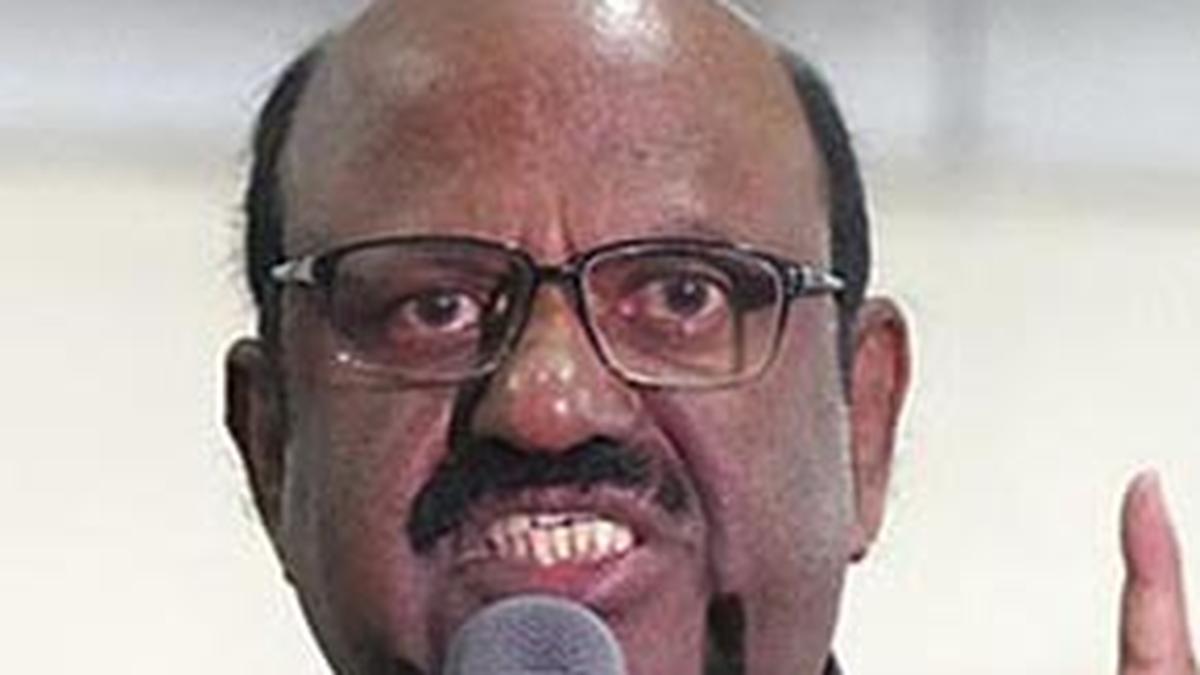
West Bengal Governor sends sealed envelope to SEC after failure to visit Raj Bhavan
The Hindu
“West Bengal Governor C. V. Ananda Bose has sent a sealed envelope to State Election Commissioner Rajiva Sinha after the latter failed to meet him at Raj Bhavan,” an official said on July 5.
“West Bengal Governor C. V. Ananda Bose has sent a sealed envelope to State Election Commissioner Rajiva Sinha after the latter failed to meet him at Raj Bhavan,” an official said on July 5.
Mr. Sinha reasoned that he was very busy with election work and would not be able to visit Raj Bhavan to meet the Governor.
"The Governor had asked the SEC to come to Raj Bhavan to discuss the recent incidents of poll violence. But Sinha did not visit him, stating that he was busy with election work. Following this, Governor Bose sent a sealed envelope, which contains sensitive documents, to the SEC," the official told PTI, without divulging anything about the contents of the documents. Repeated calls to Mr. Sinha went unanswered.
Ananda Bose had on Monday given Mr. Sinha 48 hours to rein in panchayat poll violence. The Governor has visited affected areas in Canning, Bhangar and Basanti in South 24 Parganas district and Dinhata and Sitai in Cooch Behar district in the northern part of the State.
Several people have been killed and many injured in poll violence in the State over the last one month.
Around 5.67 crore people are eligible to cast their votes in the three-tier panchayat elections in the State on July 8 for nearly 74,000 seats in zilla parishads, panchayat samitis and gram panchayats.

“Writing, in general, is a very solitary process,” says Yauvanika Chopra, Associate Director at The New India Foundation (NIF), which, earlier this year, announced the 12th edition of its NIF Book Fellowships for research and scholarship about Indian history after Independence. While authors, in general, are built for it, it can still get very lonely, says Chopra, pointing out that the fellowship’s community support is as valuable as the monetary benefits it offers. “There is a solid community of NIF fellows, trustees, language experts, jury members, all of whom are incredibly competent,” she says. “They really help make authors feel supported from manuscript to publication, so you never feel like you’re struggling through isolation.”

Several principals of government and private schools in Delhi on Tuesday said the Directorate of Education (DoE) circular from a day earlier, directing schools to conduct classes in ‘hybrid’ mode, had caused confusion regarding day-to-day operations as they did not know how many students would return to school from Wednesday and how would teachers instruct in two modes — online and in person — at once. The DoE circular on Monday had also stated that the option to “exercise online mode of education, wherever available, shall vest with the students and their guardians”. Several schoolteachers also expressed confusion regarding the DoE order. A government schoolteacher said he was unsure of how to cope with the resumption of physical classes, given that the order directing government offices to ensure that 50% of the employees work from home is still in place. On Monday, the Commission for Air Quality Management in the National Capital Region and Adjoining Areas (CAQM) had, on the orders of the Supreme Court, directed schools in Delhi-NCR to shift classes to the hybrid mode, following which the DoE had issued the circular. The court had urged the Centre’s pollution watchdog to consider restarting physical classes due to many students missing out on the mid-day meals and lacking the necessary means to attend classes online. The CAQM had, on November 20, asked schools in Delhi-NCR to shift to the online mode of teaching.









